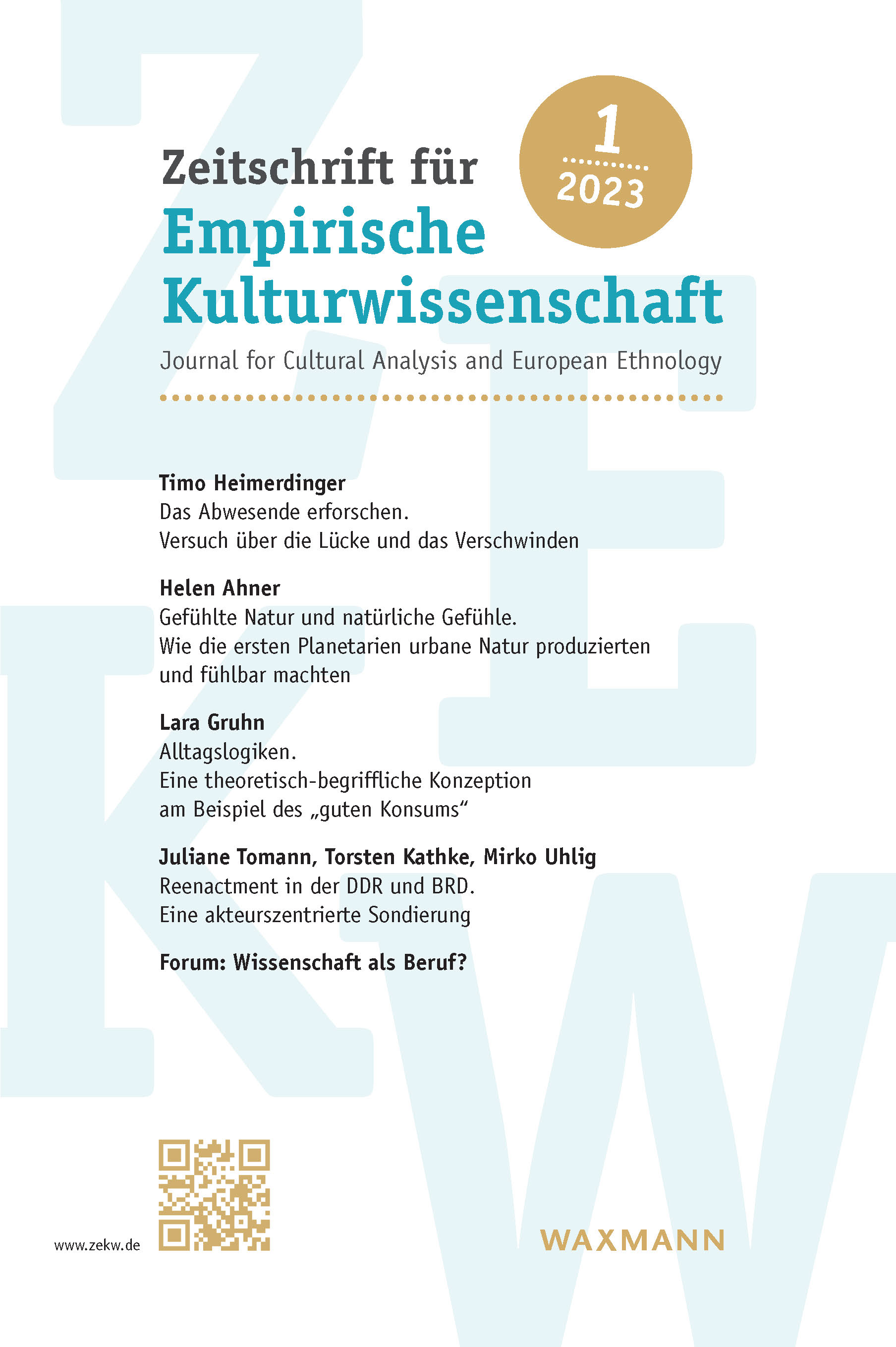Abstract
When the world’s first planetariums opened in the mid-1920s in the Weimar Republic, people flocked to the institution to view the starry sky, to have it explained to them and to feel close to it. This starry sky, projected onto a dome by a projector, was seen as nature by the mostly urban planetarium audience, and the experiences under the dome as experiences of nature. The reason for this was the feelings that arose in the planetarium and were deliberately evoked by the staging of the shows. The impression of nature in the planetarium was the result of emotional work. Based on an analysis of multi-perspective sources (press reports, lecture manuscripts, advertising materials, planning and administrative documents, photographs, correspondence, etc.), this article shows: Feelings are not only the indicator that something is nature; feelings make nature. Nature was revealed in the planetarium as a co-production of people and machines, technology and narrative, emotion and cognition. It revealed itself as a con(-)fusion in which people found (aesthetic) experiences that fulfilled a variety of purposes for them: These experiences brought them close to a nature imagined as pure and moral, enabled ’modern’ ways of feeling, provided knowledge marked as scientific, and put them in a mood that seemed particularly valuable to them.

